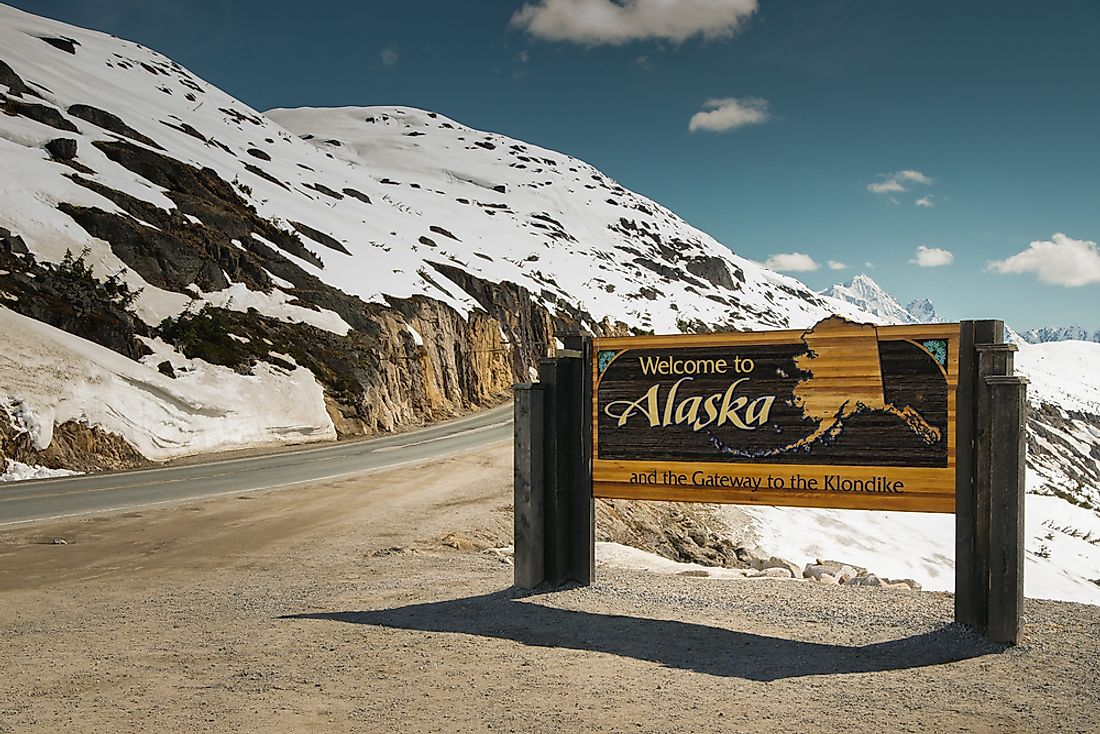Did Alaska Ever Belong to Canada?

Alaska is one of the two non-contiguous US states. It is located in the northwestern region of North America bordering Canada. In the past, the United States and the United Kingdom (which had control of Canada) had a dispute about the boundary of the state. The dispute began back in 1821 during the time of the Russian Empire and was not resolved until later in 1903 through arbitration. Initially, the dispute existed between the UK and the Russian Empire. However, the United States purchased Alaska from the Russian Empire in 1867 thus inheriting the dispute with the UK. The final resolution clearly favored the US, which is why Alaska is part of the US today.
Background
Back in 1825, Britain and Russia signed the Anglo-Russian Convention, which was aimed at marking out the border between the territories. However, the wording of the convention at that time was more of an agreement in principle than an actual border demarcation. The two major groups that were involved in the agreement were the Hudson's Bay Company of Canada and the Russian-American Company of Russia.
In 1867, the US bought Alaska from Russia during a period when the border had not yet been properly demarcated. After the unity of British Columbia under the new Canadian Confederation in 1871, the Canadian government wanted to start a survey to mark the border. The US government denied the request citing high costs for surveying an area that was sparsely populated.
However, the area became of importance following the Klondike gold rush that happened between 1897 and 1898. The area became crucial after the discovery of gold and the ensuing surge in population. Consequently, the need for a clear border became crucial. Using the wording from the 1825 definition of the boundary, Canada sent a detachment to occupy it for Canada. However, people from the American side quickly evicted the Canadian police detachment. After this, Canada ended up sending a unit of 200 soldiers to the territory, which further aggravated the dispute.
Negotiations
Serious negotiations that began in 1898 ended up in failure. One of the biggest issues with the 1825 treaty that posed a challenge was that it was written in French. As such, agreeing on a translation for a document that was already vague severely hampered arbitration efforts. Eventually, both parties agreed to assemble a tribunal of six people in 1903. The tribunal was composed of three Americans (the Secretary of War, a Senator, and an ex-senator), two Canadians (a Lieutenant Governor of Quebec and a lawyer), and a Briton as the sixth member.
The six-person tribunal had six agendas to consider. The agendas included the starting point of the boundary, the meaning of the phrase “Portland Channel” (including how the boundary would be drawn in it), and whether there were existing mountain ranges. Two of the remaining three agendas also revolved around the Portland Channel while the last one was about the lisière (border) stated in the 1825 treaty.
Eventually, the tribunal agreed on the current plan that ended up giving most of the territory to the US. These concessions by the UK were aimed towards getting favor from the US as well as a way of resolving issues between the two countries.











